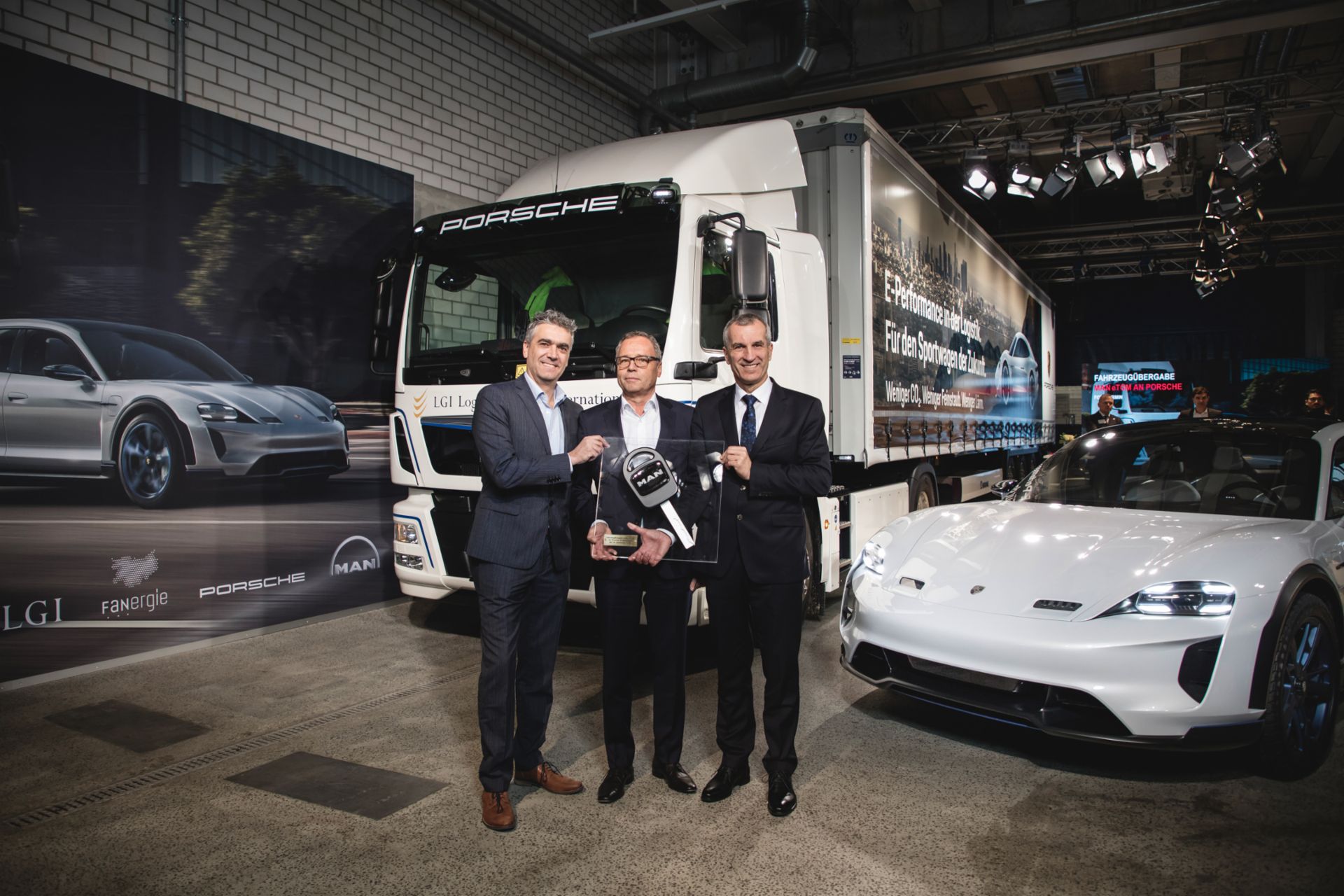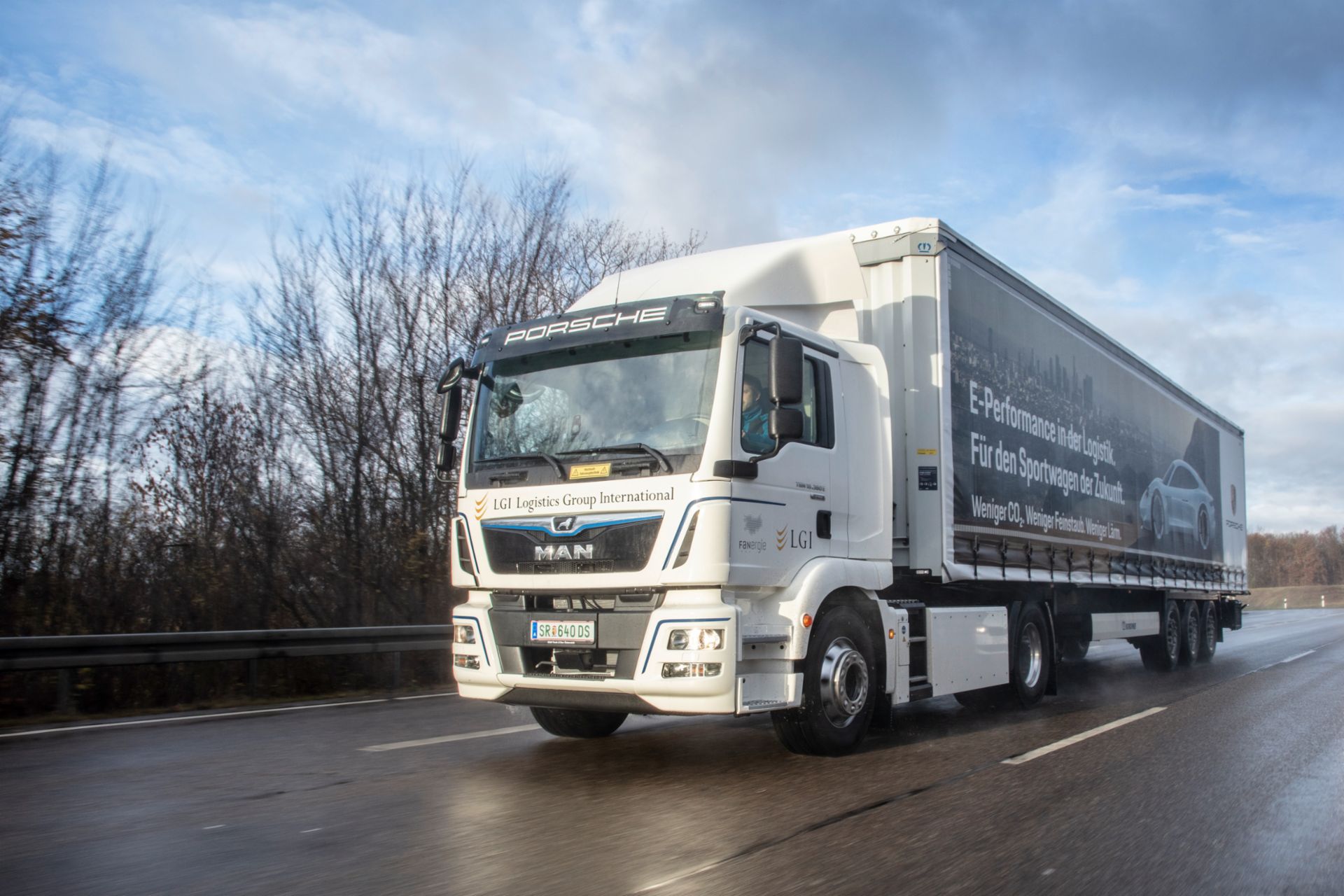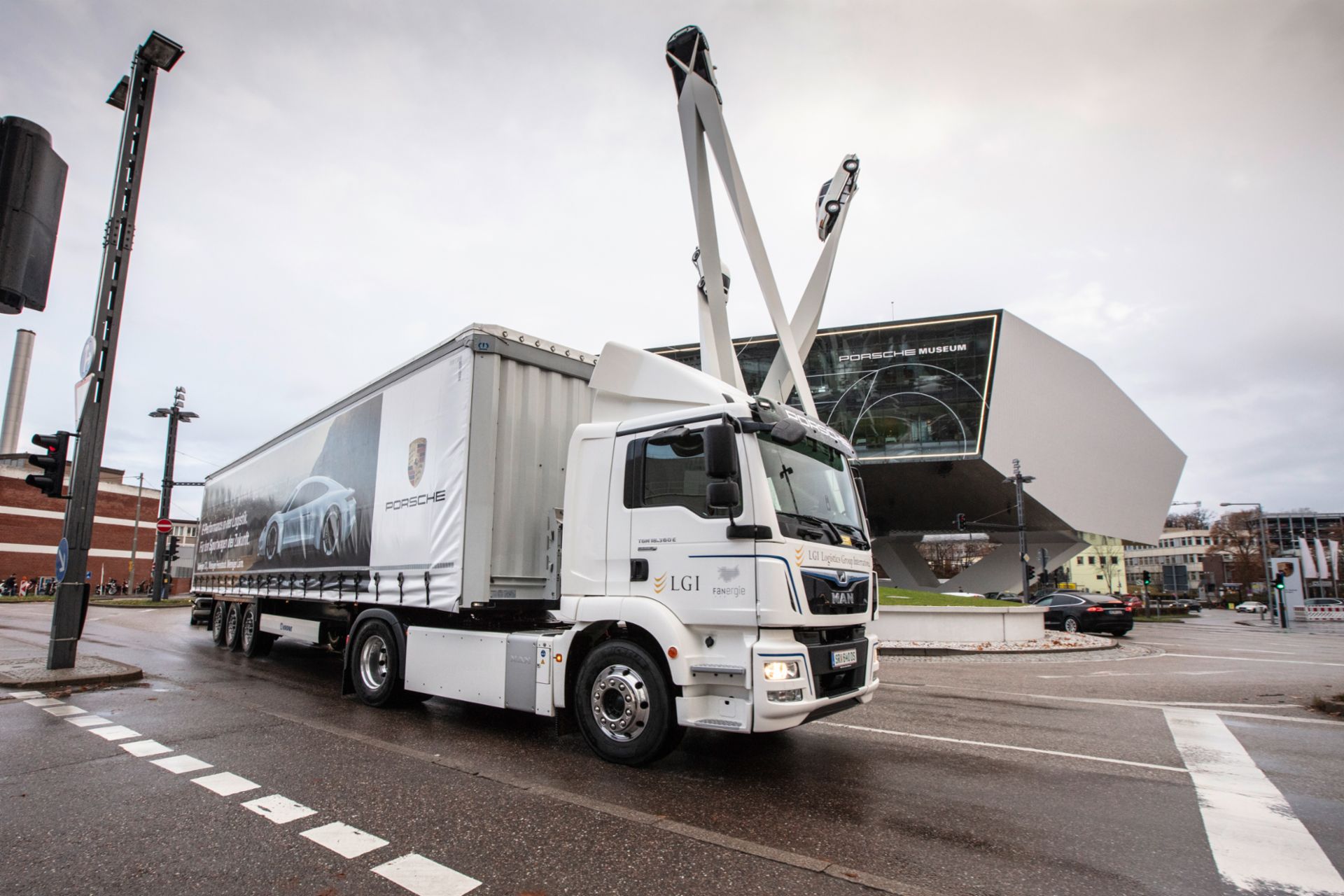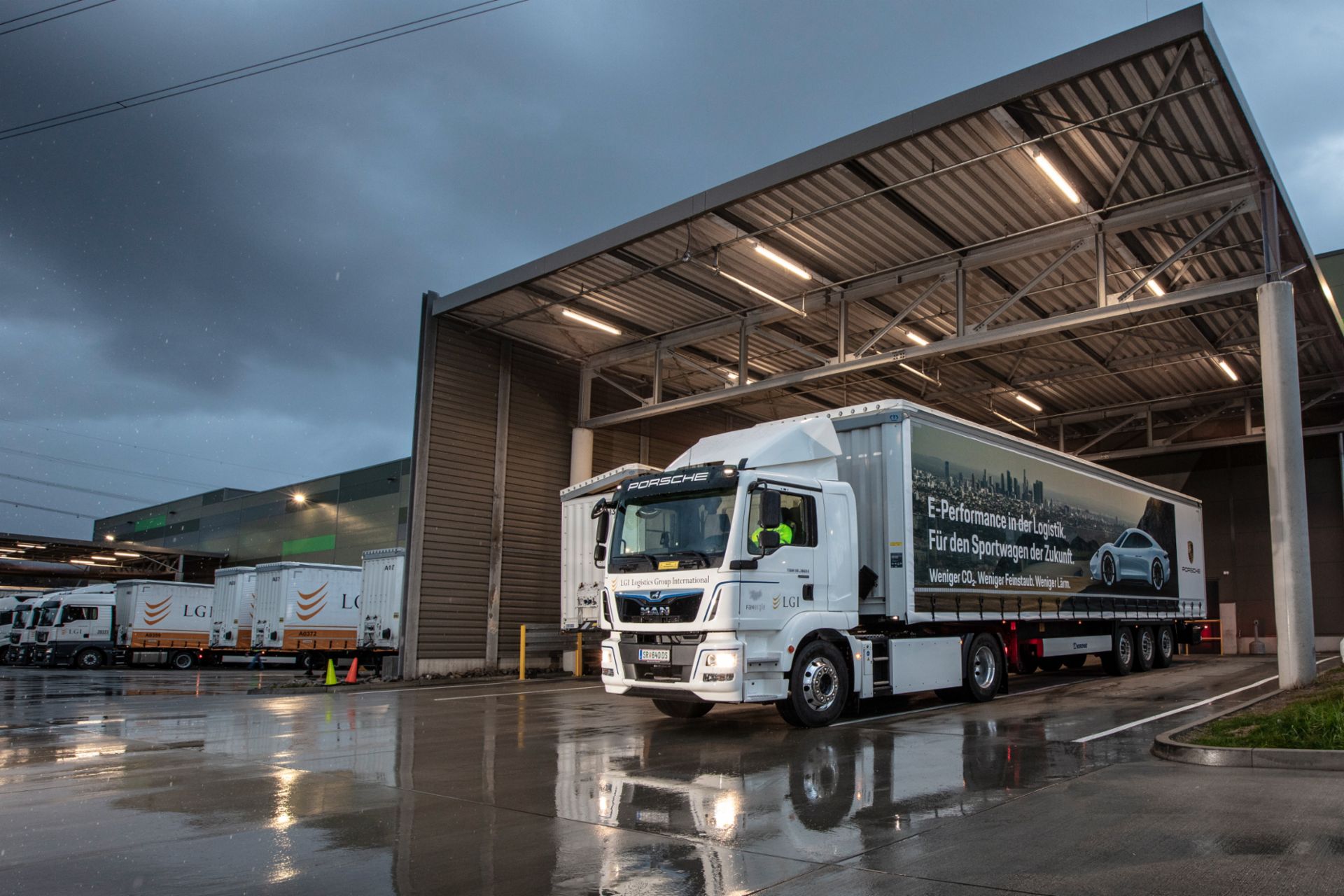The tractor-trailer rolls ever so quietly from the Porsche factory in Zuffenhausen and marks the beginning of a new era: with the delivery of the all-electric MAN eTGM to Porsche, the logistics operation of the sports car manufacturer has reached a new level of sustainability. The MAN eTGM is the first such vehicle in Germany that is designed for everyday operations. The emission-free and nearly silent semi-trailer tractor will complement the commercial vehicle fleet used by production logistics in Stuttgart-Zuffenhausen and, among others, will transport components for the planned Porsche Taycan. The Porsche headquarters is focused completely at the moment on preparations to produce the first all-electric Porsche. TRATON is committed to facilitating sustainable transportation, with efficient, reliable solutions. These solutions include internal combustion engines that use alternative fuels and all-electric drive systems.

“By integrating the e-truck into production logistics, Porsche has taken another step toward becoming a zero-impact factory,” said Albrecht Reimold, the Member of the Board of Management responsible for production and logistics at Porsche AG. It is Porsche’s ambition as a company to leave behind the smallest possible carbon footprint along the entire value chain. The company must initiate a number of measures and reach a range of milestones on its way to becoming a zero-impact factory. As part of its commitment, all of Porsche’s production sites have been using only energy produced from renewable sources, since 2016. Porsche is also working to electrify its logistics vehicles—including vans, trucks and forklifts. The first all-electric tractor-trailer represents a quantum leap in the company’s efforts to make its logistics operations sustainable. The battery-powered truck delivered on December 14, 2018, in Stuttgart is a MAN eTGM 18.360 4x2 LL, a tractor-trailer combination that can weigh up to 32 tons on the road. Its lithium-ion batteries can store up to 149 kWh and give the eTGM a range of 130 kilometers.
With this e-truck for Porsche, MAN is moving along its e-mobility road map. Starting in 2019, the company plans to launch a small series of the MAN eTGM that will be tested by various customers. The commercial vehicle specialist will apply the knowledge it has gained at Porsche to this first small series of vehicles that are planned for 2019. Dr. Manuel Marx, the Head of Vehicle Development at MAN, says: “The MAN eTGM represents a huge step in the effort to prepare electric commercial vehicles for series production. It will also show just how well these vehicles can perform on the job every day. The knowledge we gain together with Porsche from regular plant logistics will flow into other vehicles that will be used for customer tests in 2019. We are passionately working on our e-trucks.”

The strengths of electric vehicles range from low noise levels and CO2 neutrality to reduced wear and decreased maintenance needs. Thanks to recuperation—that is, the recovery of energy during braking, through an alternator—the electric vehicle can decelerate without using mechanical brakes and does not experience any wear on the brakes in the process.
The eTGM will be used in logistics operations on a nearly 19-kilometer-long route that runs between the site at Freiberg am Neckar operated by the logistics partner LGI and the Porsche plant in Stuttgart-Zuffenhausen. The charging station for the electric truck is also located in Freiberg. It is the first model of the new rapid-charging infrastructure that the joint venture Ionity will operate in the future. For this logistics application, the charging power is designed for a maximum of 150 kWh, enough to recharge the truck for its next 100 kilometers of service in 45 minutes of charging time. This will ensure smooth operations.

